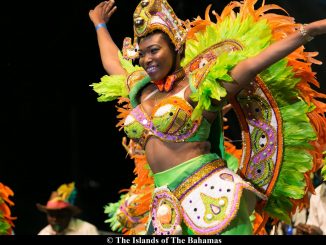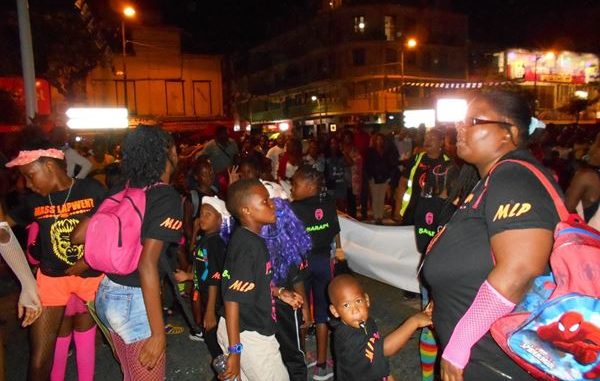
Does carnival make people crazy? Because it is a moment of fun, culture, tradition and especially freedom, can we leave carnival lovers, in this case some “gwoup a Ti Mas” (Ti Mas or little Mas groups) endanger the health of very young children including babies?
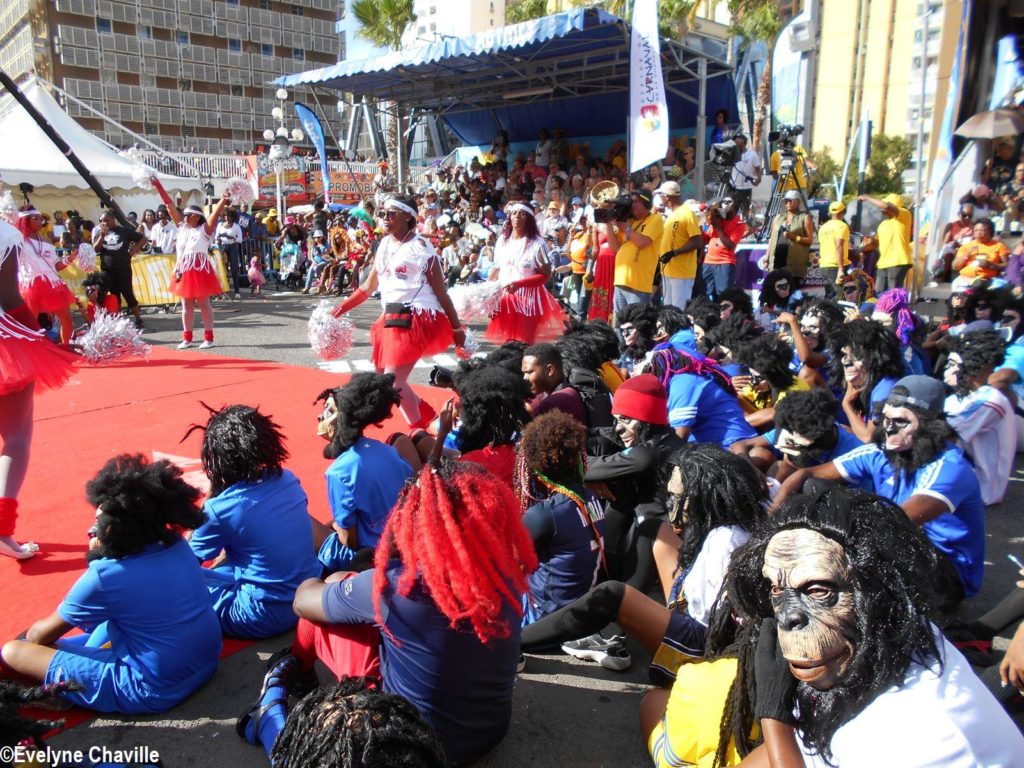
The phenomenon of “gwoup a Ti Mas” (Ti Mas groups) began, twenty years ago. The most popular is undoubtedly “Mas Moul Massif” from the town of Le Moule. Since then, various groups have been created with the famous gorilla mask as a main fancy dress and, although this may frighten many children, it’s a success. The catchy music with this particular metallic sound, these youth groups, a whistle to the mouth, who are having fun and the topical themes performed during the parades to make young people and adults aware of a problem make the success of these carnival bands.
The “Ti Mas” are, in a way, the heirs to young and not so young masks or mas who dressed up, more than forty years ago, often by wearing old clothes that were used to stuff the mattresses (lenj a kabann, in Creole ) and who came to the districts of the whole island playing drums and asked for a coin after dancing… A real moment of fright for the children who went generally to hide under their bed!
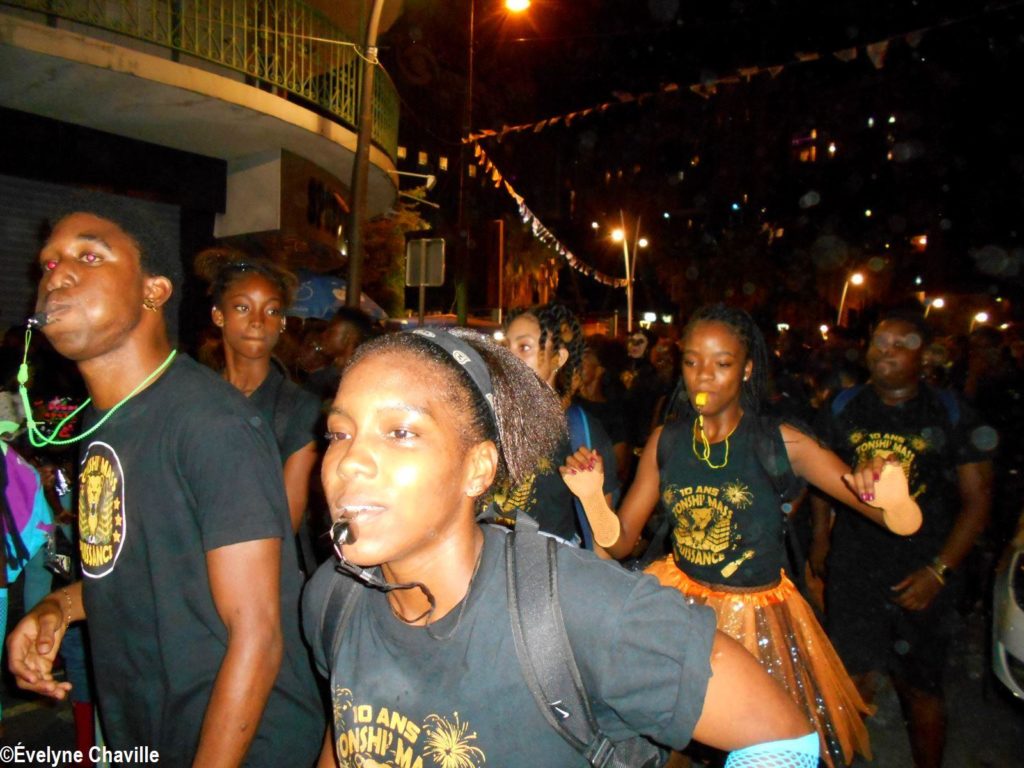
Preparing the succession, but at what price?
Today, the “gwoup a Ti Mas” are often managed by parents who, while parading, keep an eye on their offspring and on the smooth running of the event. Although it is a pleasure to see these parades with young people, all the same we can ask some questions about their organization.
Is it reasonable to organize after 6:00 pm these Ti-Mas parades in which very young children take part, every Sunday during the carnival period that means from the first Sunday of January to Ash Wednesday? Is it necessary to reduce the duration of these parades? Certainly, it is necessary to prepare the succession in carnival and to give the taste of this traditional festival to young children, which is not reprehensible. In some Caribbean islands, children also participate in carnival. For example, in the end-of-year “Junkanoo” that begins at night to end in the morning but this carnival of the Bahamas does not last for several weeks in a row…
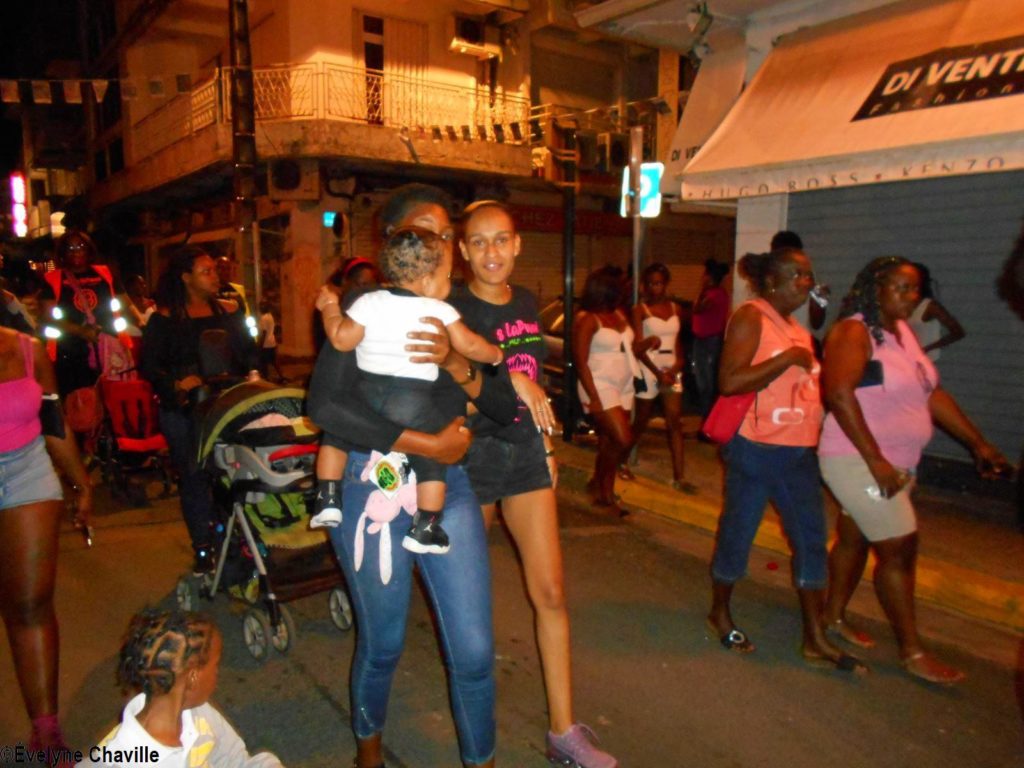
Tired children?
Is it reasonable to let these young children walk several kilometres on Sunday night, given that they have to wake up the next day to go to school? Of course, the parade takes place at night, the sun is already down so the temperature is nice, all that is done in music, song and dance, therefore the distance covered even if it is long is not measured and it does not seem very important… but next day the legs are tired. We often see young children walking in all these night parades (of Ti Mas or others) with a haggard look, we imagine they would rather have preferred to be in their bed but if their parents have no one to keep an eye on them while they parade, whether they like it or not, they also participate in the party…
Is it reasonable to let mothers with young children in their arms and babies in strollers participate in these “Ti Mas” parades whether they take place during the day or the night? More and more, these young women often dressed up, sometimes they even wear a “security” t-shirt (how can they be in charge of the safety of the group and her baby at the same time?), sing, dance and push strollers at the back of the parade, that is to say just behind the musicians who are playing the bass drum so beating the biggest barrels of the band.
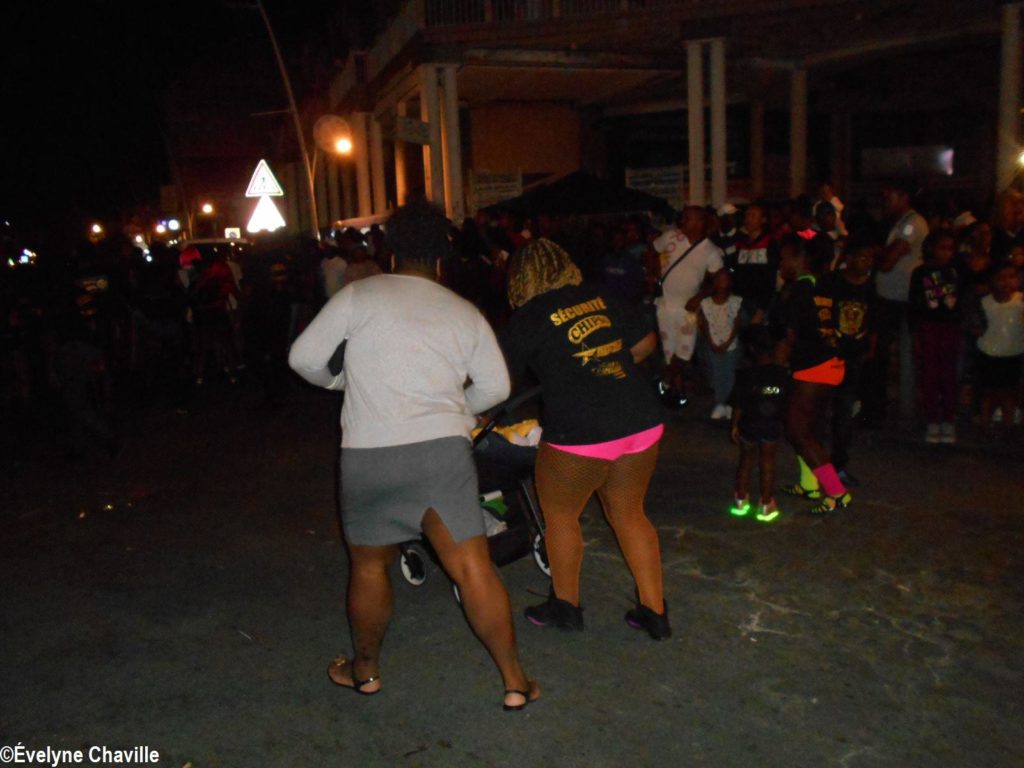
Unaware or selfish mothers?
Are these young women selfish, so do they first think of having fun by saying one of our most fashionable mottos at the moment: “nou ké vwè ka sa ké bay” (we will see what effect this has)? Are these young mothers aware that they are slowly but surely destroying the hearing of their babies?
Indeed, when an adult is in a sound environment that is too high (over 85 decibels) and for a long time, this can cause a temporary or permanent impairment of hearing. In babies, parents are advised to not to exceed 60 decibels, which corresponds to a normal conversational voice. Over 80 decibels, the consequences on the hearing of the child are irreversible, his inner ear is completely formed only around two years. Walking a baby for two, three hours or more in a carnival parade where he is exposed to a decibel number that is close to that of a discotheque (105 decibels) lets easily imagine the risk of deafness…
In addition, last year, during the carnival period, musicians from a “Ti Mas group” even came to play in a crèche in Pointe-à-Pitre…

























































